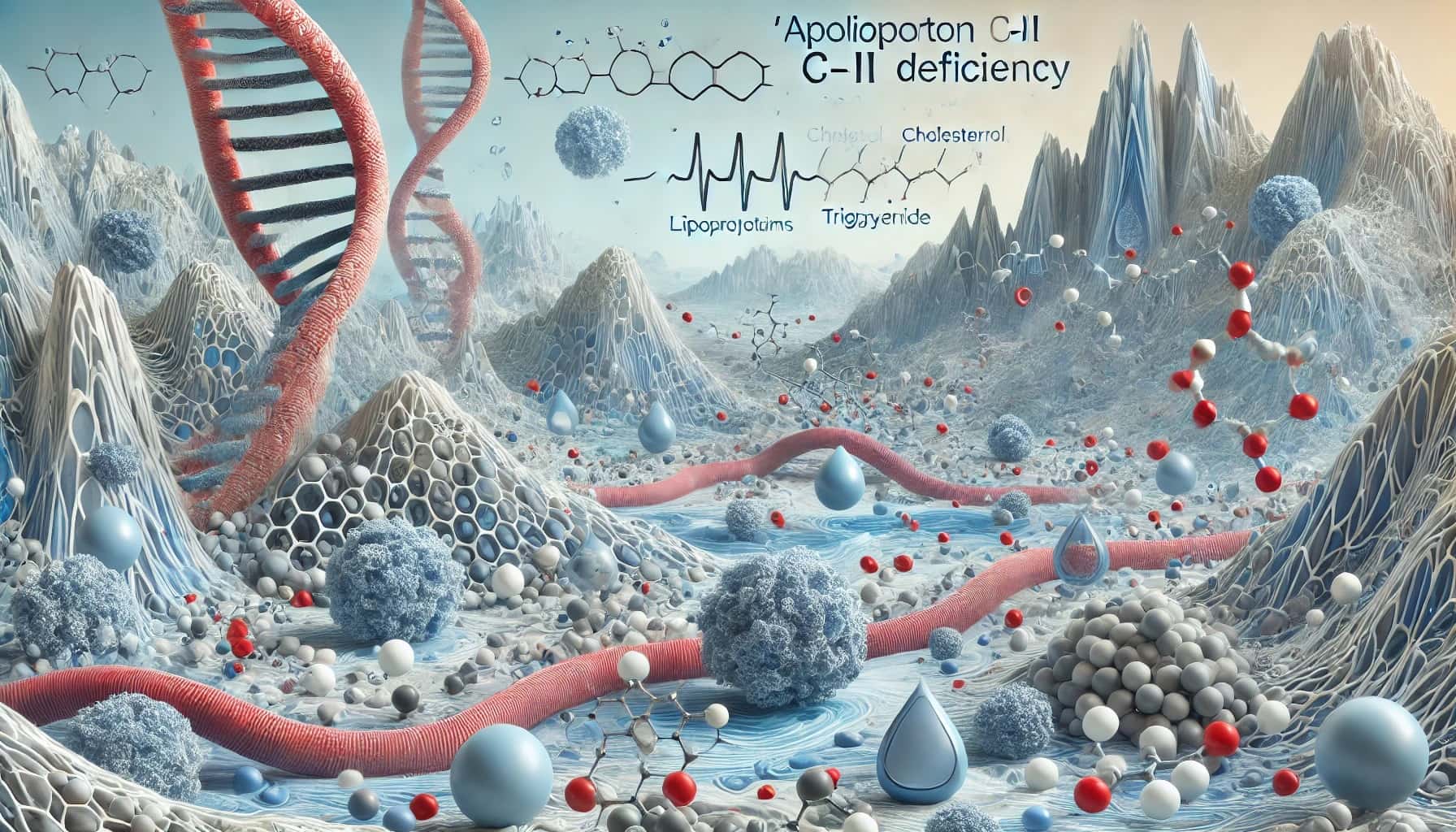
Apolipoprotein C-II deficiency might sound like a mouthful, but understanding it can be crucial for your health. This rare genetic disorder affects how your body processes fats, leading to high levels of triglycerides in the blood. Symptoms can range from mild to severe, including abdominal pain, pancreatitis, and even xanthomas, which are fatty deposits under the skin. Diagnosis often involves blood tests to measure triglyceride levels and genetic testing to confirm the deficiency. Treatment usually includes dietary changes, medications, and sometimes supplements to manage triglyceride levels. Knowing these facts can help you or someone you care about manage this condition better.
What is Apolipoprotein C-II Deficiency?
Apolipoprotein C-II deficiency is a rare genetic disorder affecting lipid metabolism. This condition can lead to severe health issues if not managed properly. Here are some key facts to help you understand this condition better.
-
Apolipoprotein C-II (ApoC-II) is a protein that plays a crucial role in breaking down triglycerides in the blood. Without it, triglycerides can accumulate, leading to health problems.
-
Genetic Mutation: The deficiency is caused by mutations in the APOC2 gene. This gene provides instructions for making the ApoC-II protein.
Symptoms of Apolipoprotein C-II Deficiency
Recognizing the symptoms early can help in managing the condition effectively. Here are some common symptoms associated with this deficiency.
-
Hypertriglyceridemia: Elevated levels of triglycerides in the blood are a hallmark of this condition. This can lead to pancreatitis if not treated.
-
Eruptive Xanthomas: These are small, yellowish bumps on the skin caused by fat deposits. They often appear on the buttocks, knees, and elbows.
-
Hepatosplenomegaly: Enlargement of the liver and spleen can occur due to fat accumulation in these organs.
Diagnosis of Apolipoprotein C-II Deficiency
Accurate diagnosis is essential for effective treatment. Here are some methods used to diagnose this condition.
-
Blood Tests: Measuring triglyceride levels in the blood can indicate hypertriglyceridemia, a key symptom of ApoC-II deficiency.
-
Genetic Testing: Identifying mutations in the APOC2 gene can confirm the diagnosis. This is often done through a blood sample.
-
Lipoprotein Electrophoresis: This test separates lipoproteins in the blood to identify abnormalities in lipid metabolism.
Treatment Options for Apolipoprotein C-II Deficiency
Managing this condition involves a combination of lifestyle changes and medical treatments. Here are some common approaches.
-
Dietary Changes: Reducing fat intake can help manage triglyceride levels. A diet low in saturated fats and simple sugars is often recommended.
-
Medications: Fibrates and omega-3 fatty acids are commonly prescribed to lower triglyceride levels.
-
Gene Therapy: Though still experimental, gene therapy aims to correct the underlying genetic mutation causing the deficiency.
Complications of Apolipoprotein C-II Deficiency
If left untreated, this condition can lead to severe complications. Here are some potential risks.
-
Acute Pancreatitis: High triglyceride levels can cause inflammation of the pancreas, leading to severe abdominal pain and other complications.
-
Cardiovascular Disease: Elevated triglycerides increase the risk of heart disease and stroke.
Living with Apolipoprotein C-II Deficiency
Managing this condition requires ongoing care and lifestyle adjustments. Here are some tips for living with ApoC-II deficiency.
-
Regular Monitoring: Frequent blood tests to monitor triglyceride levels are essential for managing the condition.
-
Support Groups: Joining a support group can provide emotional support and practical advice for living with a rare genetic disorder.
Final Thoughts on Apolipoprotein C-II Deficiency
Apolipoprotein C-II deficiency, though rare, plays a significant role in lipid metabolism. This condition can lead to severe hypertriglyceridemia, pancreatitis, and other health issues. Understanding the symptoms, causes, and treatments is crucial for managing it effectively. Early diagnosis and intervention can make a big difference in patient outcomes.
Lifestyle changes, such as a low-fat diet and regular exercise, can help manage symptoms. Medications like fibrates and omega-3 fatty acids also play a role in treatment. Genetic counseling might be beneficial for affected families.
Staying informed and proactive can help those with this condition lead healthier lives. If you suspect you or a loved one might have this deficiency, consult a healthcare professional for proper diagnosis and treatment options. Knowledge and early action are key to managing Apolipoprotein C-II deficiency effectively.
Was this page helpful?
Our commitment to delivering trustworthy and engaging content is at the heart of what we do. Each fact on our site is contributed by real users like you, bringing a wealth of diverse insights and information. To ensure the highest standards of accuracy and reliability, our dedicated editors meticulously review each submission. This process guarantees that the facts we share are not only fascinating but also credible. Trust in our commitment to quality and authenticity as you explore and learn with us.


